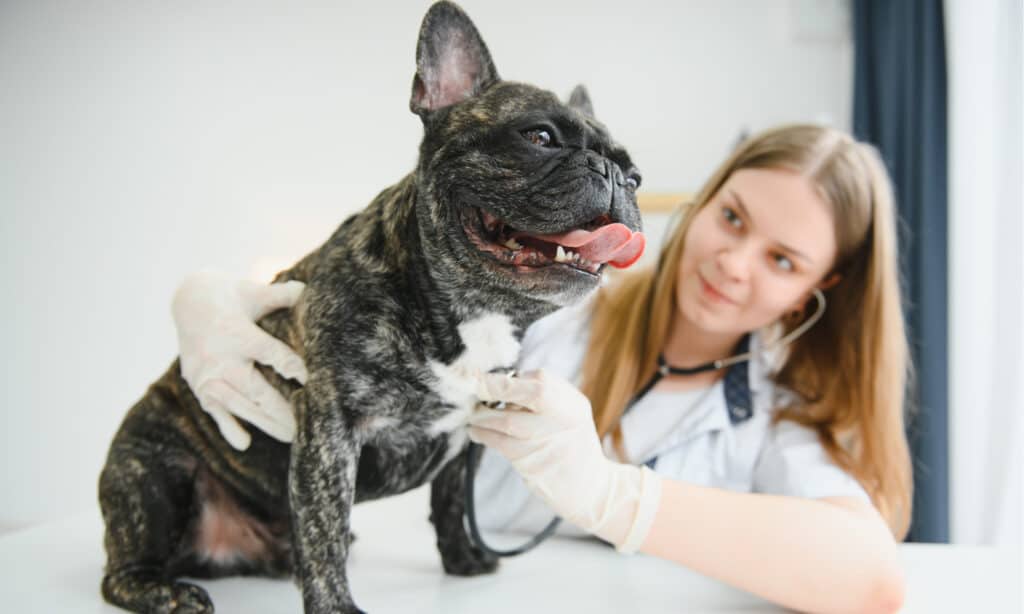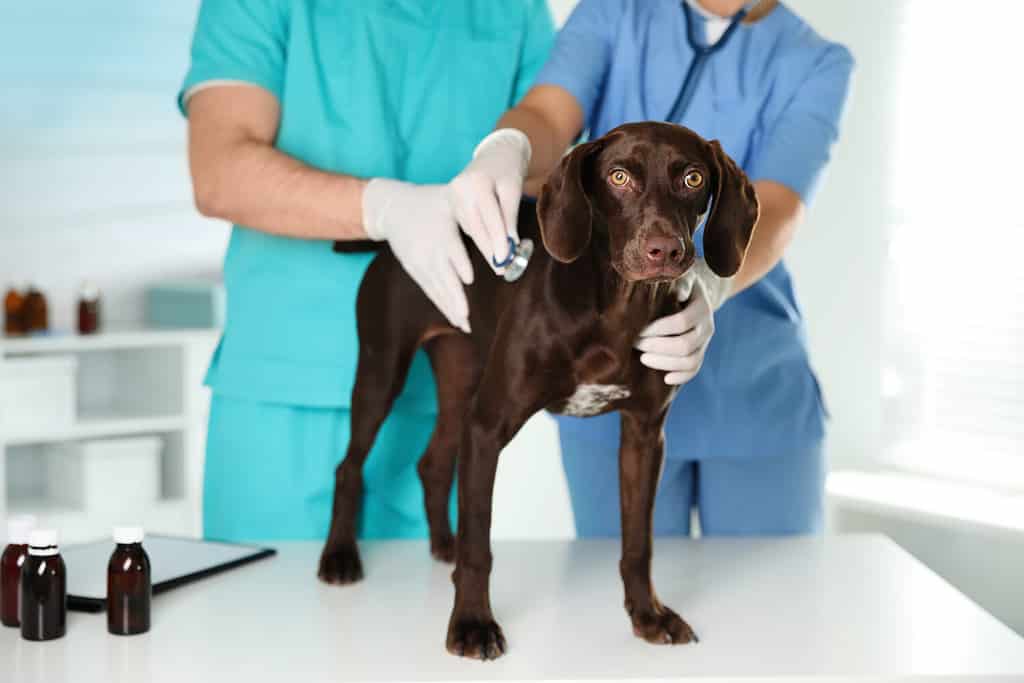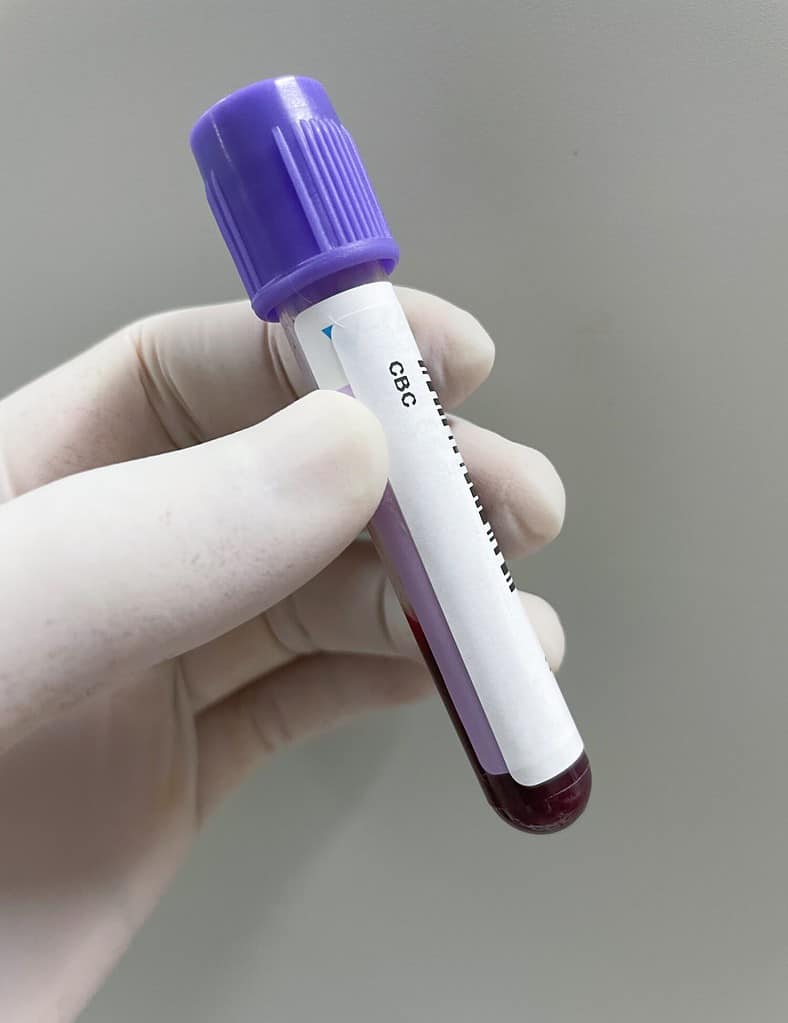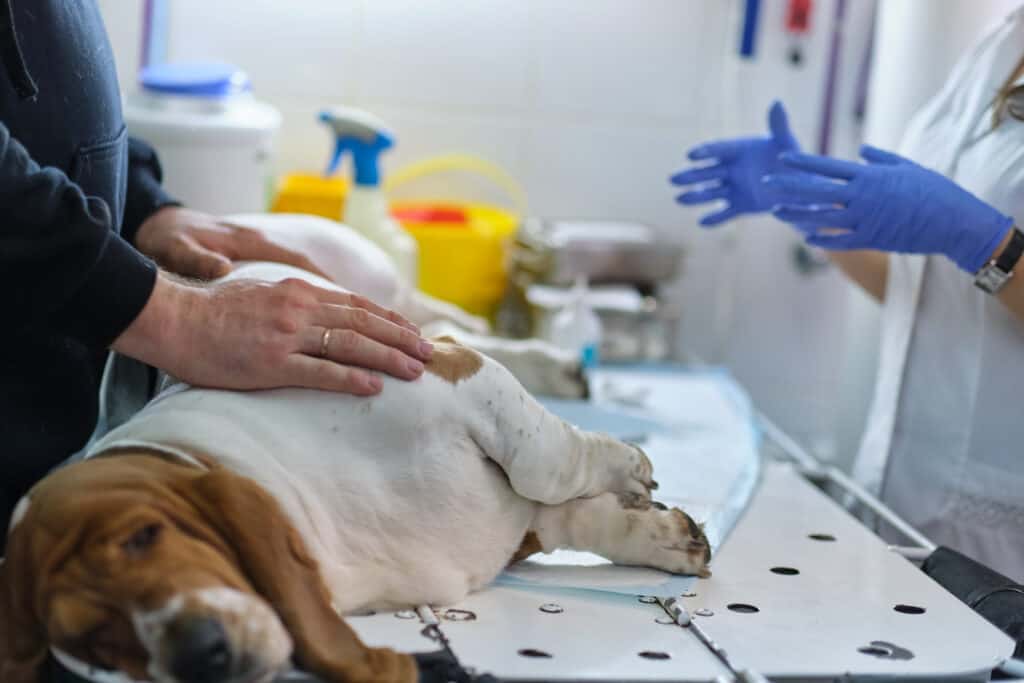When it comes to our beloved canine companions, there is so much to learn. From their quirky behaviors to their unique physiology, as a pet parent or veterinarian, it is all important to understand. Blood types are just one captivating aspect of canine biology. Similar to humans, dogs have many different blood type variations. You might know your own, but do you know your dog’s blood type? If not, read on to discover the importance of this often-overlooked characteristic!
In this article, delve into the intriguing world of dogs to learn about canine blood types, which is the most common, and why blood typing is important. Understanding a dog’s blood type can unlock a plethora of hidden information, such as where their bloodline comes from, critical transfusion details, and how to responsibly breed them. Whether you are a passionate dog breeder, curious dog owner, or an inquisitive veterinary professional, journey into the world of canine blood types to pique your interest and, most importantly, deepen your understanding of your four-legged friends!

Dr. Richard Lower performed the first successful blood transfusion in 1665, and it was between two dogs
©Hryshchyshen Serhii/Shutterstock.com
Overview of Dog Blood Types
Though scientists have discovered over 13 canine blood groups, only eight types are nationally recognized. These eight groups are as follows: DEA 1.1, 1.2, 3, 4, 5, 6, 7, and 8. Dog Erythrocyte Antigen, shortened to DEA, is the protein found in canines’ red blood cells. By measuring the reaction of their blood to certain antibodies, pathologists can determine which DEA group the dog belongs to. This reaction works to recognize major antigens on the cell’s surface. For background, antigens are substances in the body that stimulate the immune system. When a dog has specific antigens on their red blood cells, they are positive for that antigen group. If the red blood cells do not have a given antigen, then they would be negative for that blood group. The most potent antigen present in the dog’s cells are what determines their assigned blood type.

If your dog is preparing for surgery, is pregnant, or has a history of health problems, your veterinarian might request a blood test.
©New Africa/Shutterstock.com
Importance of Blood Typing for Transfusions
It is essential to know your pet’s blood type, as it can be critical to their health and well-being. In the unfortunate event of an injury or illness, a blood transfusion could be necessary to save your pet’s life! Knowing the correct blood classification can ensure the right type is available and aid in a successful recovery.
Unlike cats, dogs do not have naturally occurring antibodies, meaning their immune system does not immediately recognize incompatible blood. Instead, they must first be exposed to incompatible blood so their immune system can develop antibodies to fight it. That is why most dogs can receive a blood transfusion from any blood group for the first time. Though the first non-compatible transfusion often has no adverse effects, all later transfusions must use compatible blood, or else a life-threatening reaction can occur. This happens because once the immune system has the antibodies to recognize the blood is not a match, it automatically seeks to destroy the foreign bodies. The immune system actually takes the same approach to clearing the body of potentially dangerous viruses and bacteria. If your dog does receive the wrong blood in their transfusion, it is critical to recognize the signs early on.
The symptoms of a rejecting transfusion range from subtle to severe depending on the dog’s age, health history, and breed. The most common signs of a reaction include difficulty breathing, drooling, tremors, convulsions, vomiting, fever, weakness, collapse, and drastic changes in heartbeat. Because this immune response can be deadly for your pet, it is important to ensure a compatible blood type is used for all transfusions. To minimize risk and guarantee the correct blood type is administered, most veterinarians perform a blood test prior to starting transfusions.

In dogs, the most common reaction associated with a bad transfusion is a high fever.
©Javier Brosch/Shutterstock.com
Importance of Blood Typing for Breeding
Displaying a complex inheritance pattern, a dog’s blood type is passed down genetically — and inherited independently — from each parent. That is why knowing the blood type of your dog is key to sustainable, healthy, and responsible breeding practices. Being aware of the blood types of the sire (male) and dam (female) allows breeders to make responsible breeding decisions. This helps them avoid incompatible pairings and prevent potential complications that put the mother and her puppies at risk.
The main problem when it comes to blood typing for breeding purposes is the risk of neonatal isoerythrolysis (NI). Though rarely occurring in canines, this condition happens when a mother has antibodies against the blood type of her puppies. When this happens during pregnancy, the mother’s immune system sees her puppies as foreign bodies and attacks their red blood cells. Since NI is a direct result of blood type incompatibility, breeders should always be aware of their dogs’ blood types. By avoiding high-risk pairings, breeders can minimize risky pregnancies and ensure healthy offspring. Additionally, breeder knowledge of their dogs’ blood type is useful for blood transfusions during delivery or for emergency surgery. This further ensures the health and safety of both the mother and her pups.

French bulldogs, Chihuahuas, and Boston terriers are the three most at-risk breeds for suffering complicated pregnancies.
©Anna Hoychuk/Shutterstock.com
DEA 1.1 — The Most Common Blood Type in Dogs
The most commonly occurring blood type in dogs is DEA 1.1 positive. Studies indicate 40% to 60% of all dogs are positive for this blood type. Regarded as the baseline blood type in canines, DEA 1.1 positive blood serves as a reference point for veterinarians to better understand blood compatibility and transfusions. Golden retrievers, Labrador retrievers, Bernese mountain dogs, American Staffordshire terriers, and most mixed-breed dogs have the DEA 1.1. positive blood type. Because it is so prevalent, blood transfusions for dogs with this blood type are performed effortlessly and without unexpected problems.
On the other hand, the DEA 1.1 negative blood type is one of the least common in dogs. Though rare, this group does have its benefits — especially for blood transfusions. Dogs that are negative for DEA 1.1 can safely act as donors to any other canine with the DEA 1.1 blood type, regardless of the receiver’s blood being negative or positive. However, dogs with this blood type are known to have the most severe reactions to incompatible blood during transfusions. Greyhounds, boxers, Irish wolfhounds, chow chows, Doberman pinschers, and pit bulls are all generally DEA 1.1 negative.

DEA 1.1 positive is the most common blood type in dogs, predominately occurring in breeds with European lineage.
©Schira/Shutterstock.com
Other Blood Types in Dogs
Dea 1.2
One of the main benefits of this blood type is that it is compatible with DEA 1.1 and DEA 1.2 negative blood types. This means dogs with this blood type can receive blood transfusions from either of the two other blood types with little chance of a negative reaction.
DEA 3 and DEA 5
These two blood types are both extremely rare in dogs. Studies revealed an estimated 20% of Greyhounds have DEA 3 blood, and an average of 30% have DEA 5 blood.
DEA 4
In humans, type O negative blood is the most important since it is the only universal blood type. DEA 4 is no different. This means that dogs who possess DEA 4 and no other antigen can safely act as donors for any other blood type. This is because all dogs naturally possess the DEA 4 red cell protein. Around 75% of Doberman pinschers have the DEA 4 blood type.
DEA 6, DEA 7, and DEA 8
While these blood times occur less frequently in canines, DEA groups 6, 7, and 8 all have mutual compatibility, which allows for transfusions between them. Specifically, DEA 6 can donate to and receive blood from DEA 6, 7, and 8. DEA 7 can donate to and receive blood from DEA 7 and 8 negative. DEA 8 can donate to and receive blood from DEA 7 negative and 8. Nevertheless, there have been some noted cases of mild transfusion reactions occurring during transfusions across these DEA groups.

Knowing your dog’s blood type can be critical during unexpected procedures or health emergencies.
©Yavdat/Shutterstock.com
Conclusion
Understanding these DEA blood types in dogs — especially the most common blood type, DEA 1.1 — plays a vital role in veterinary medicine. Having a thorough understanding of this distribution allows veterinarians to perform safe blood transfusions, minimizing the risks associated with canine illnesses, injuries, and emergency surgeries. It also enables veterinarians to expertly match donors and recipients appropriately based on the compatibility of the various blood types. Furthermore, blood typing is important as it is essential to the breeding process. By being aware of both the male and female blood types, breeders can make informed decisions to avoid incompatible pairings that lead to unhealthy pregnancies or problematic litters.
Overall, understanding the most common blood type in dogs and the importance of each DEA grouping provides valuable insights into canine health, transfusion medicine, and responsible breeding practices.
The photo featured at the top of this post is © Dragon Images/Shutterstock.com
Ready to discover the top 10 cutest dog breeds in the entire world?
How about the fastest dogs, the largest dogs and those that are -- quite frankly -- just the kindest dogs on the planet? Each day, AZ Animals sends out lists just like this to our thousands of email subscribers. And the best part? It's FREE. Join today by entering your email below.
Thank you for reading! Have some feedback for us? Contact the AZ Animals editorial team.







